Hi everyone,
My model is a die bonder arm which rotates 180° around Z direction of a central point in 0.1 second. And I try to perform linear transient analysis (direct transient response) to see all the nodal displacement. So I constrainted the central point with RBE2 and gave an enforce angular displacement using SPC and SPCD pair. (attached file is the input file)
However, the analysis result is strange. Because it seems that the arm rotates 90° around center of mass. And as it rotating, it becomes thinner and longer.
Thanks & Regards,
Super
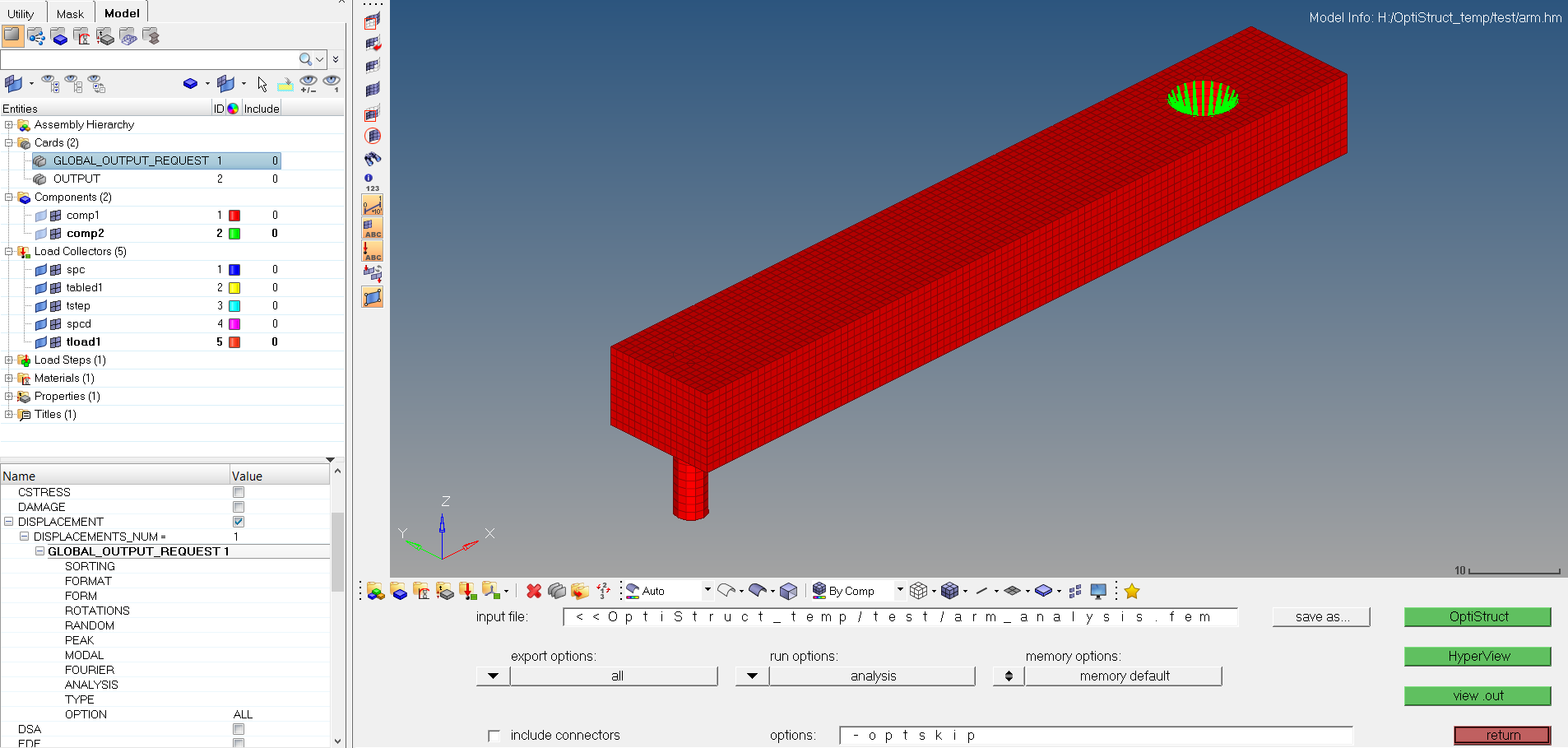
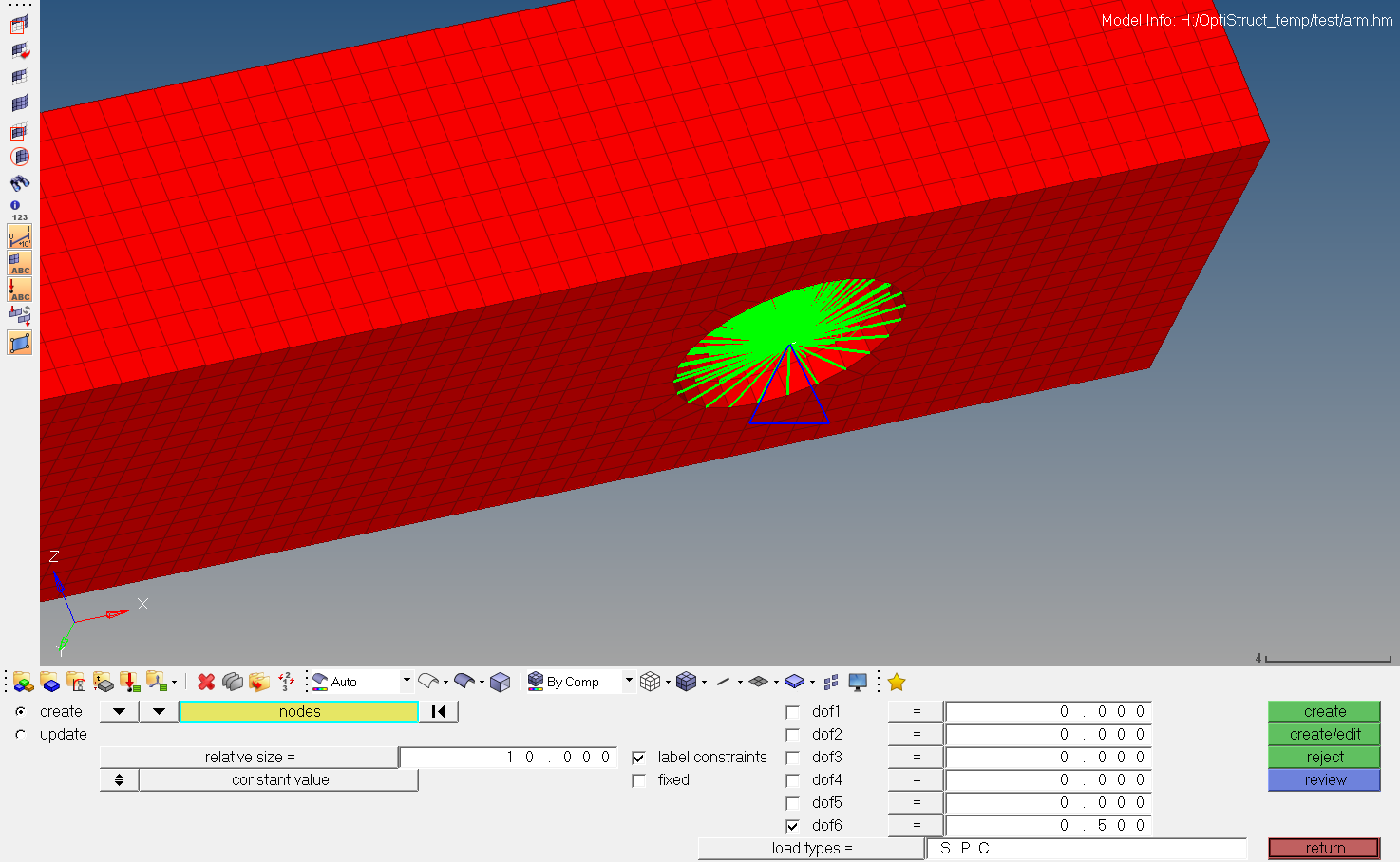
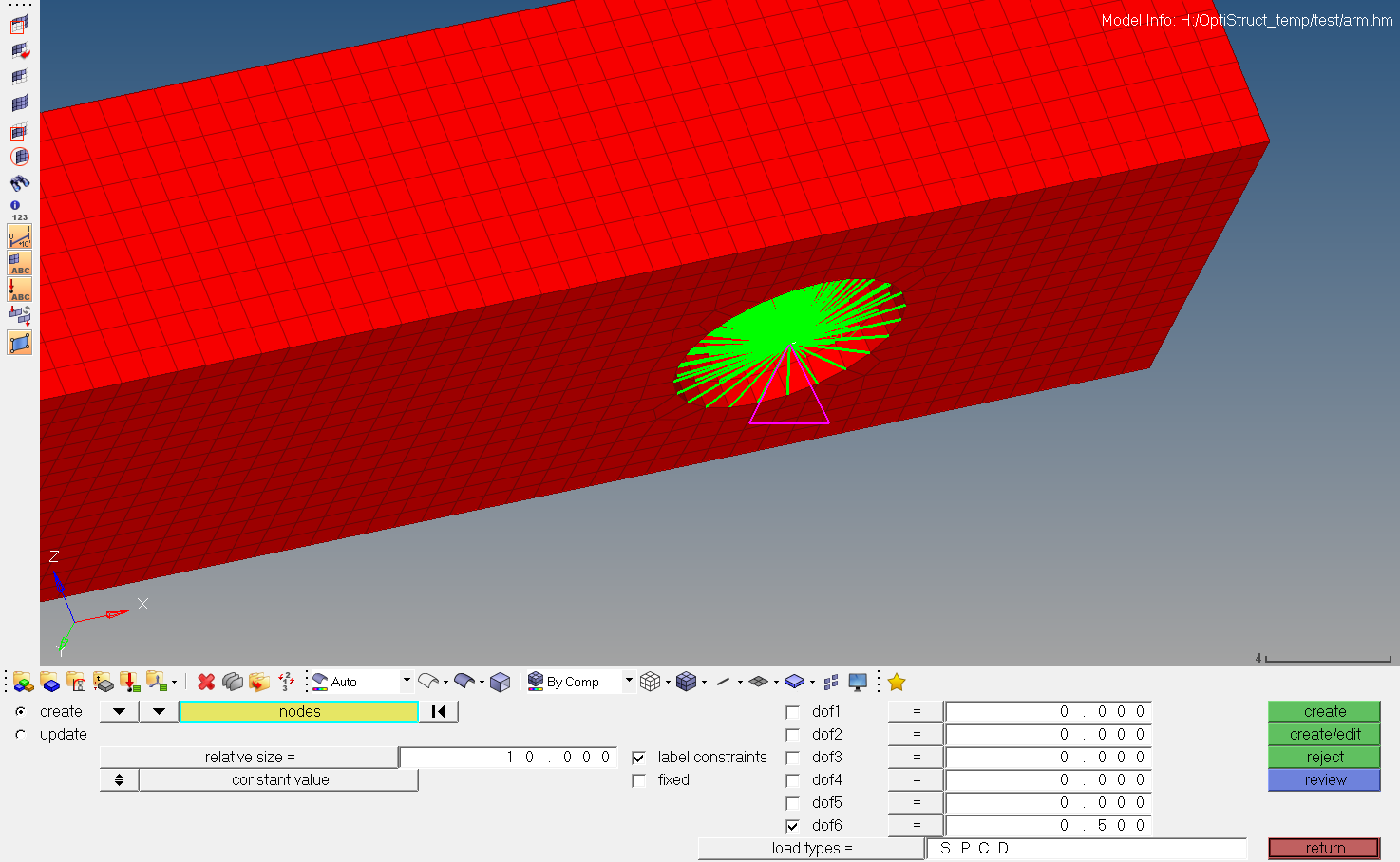
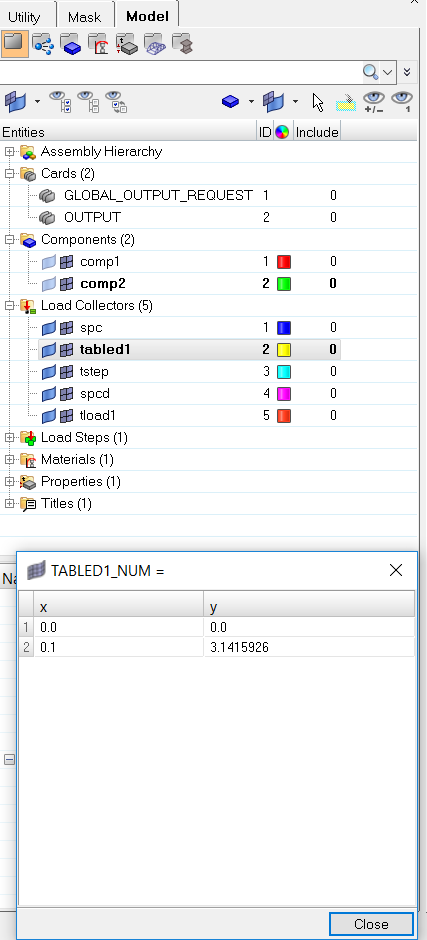
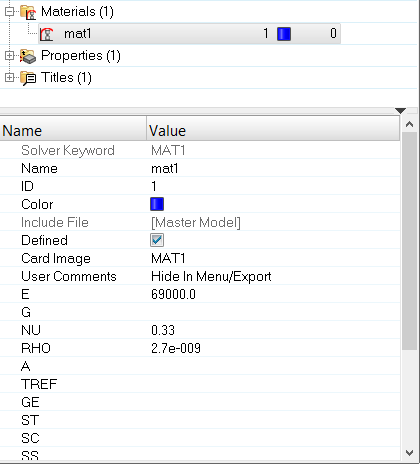
The linear transient analysis results are as following figures.(0s -> 0.05s -> 0.1s)
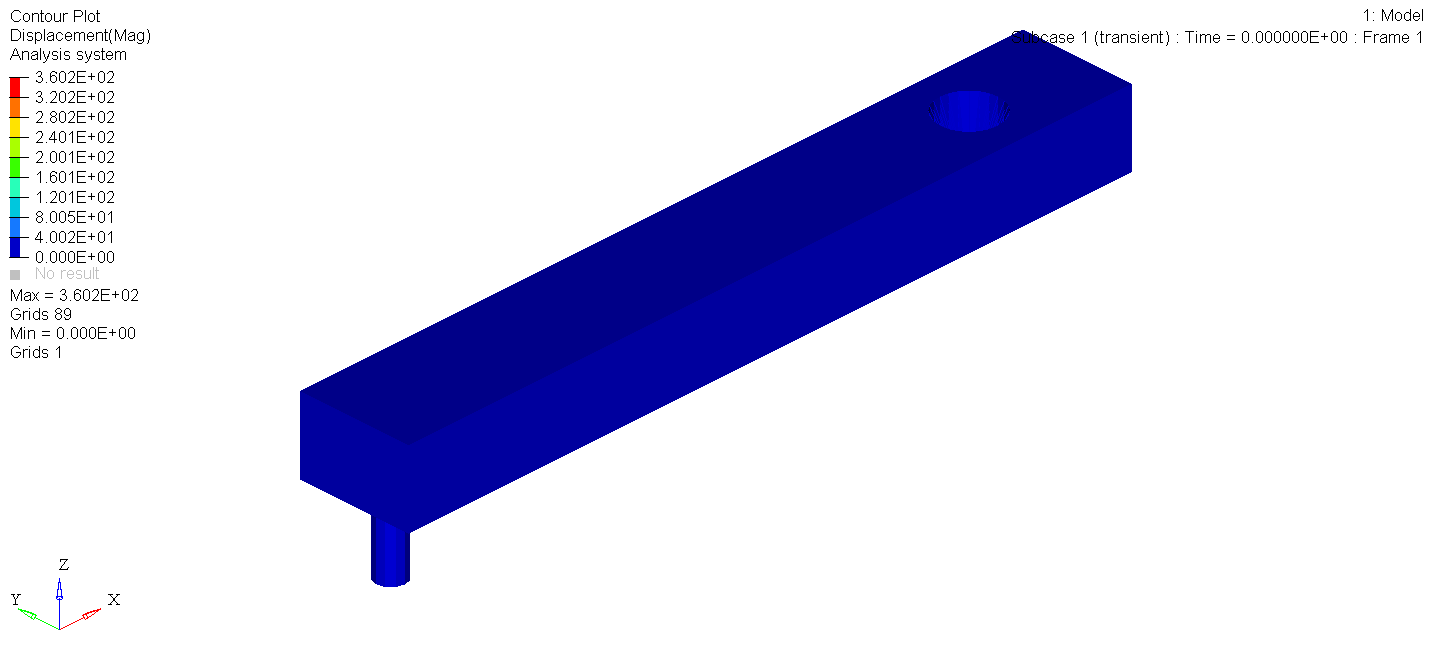
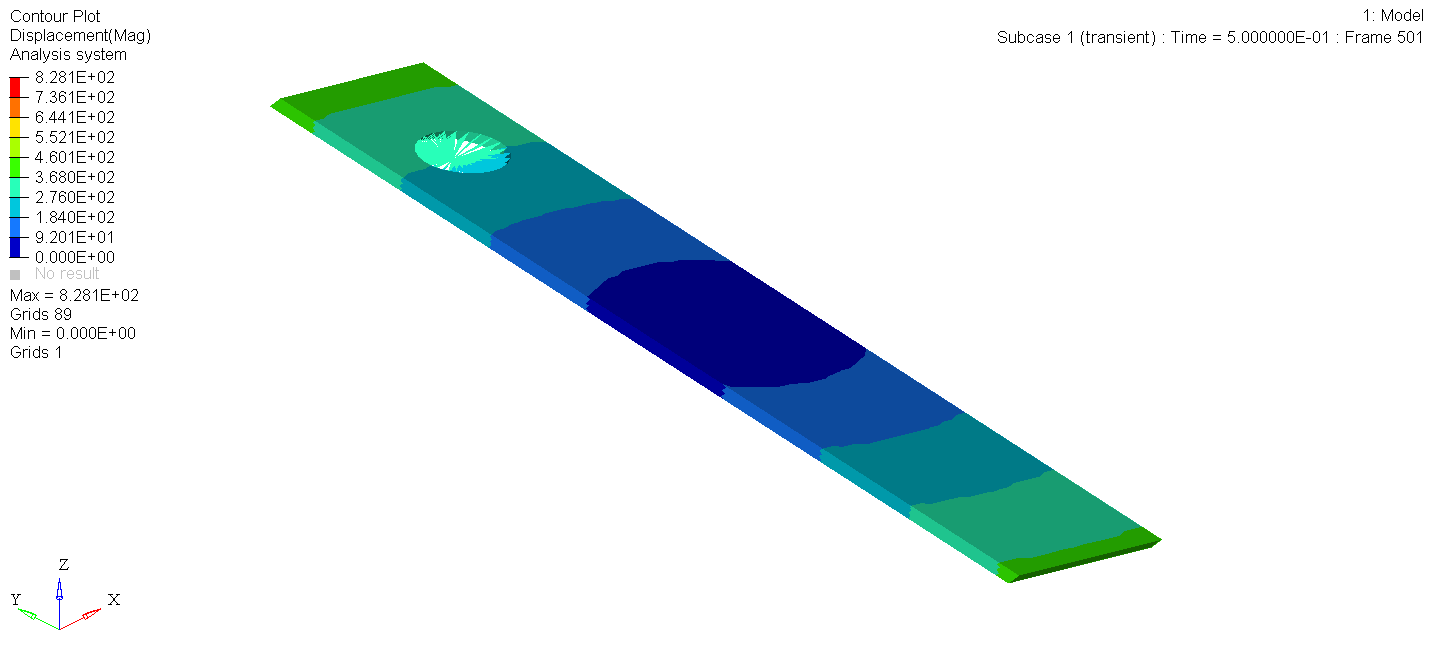
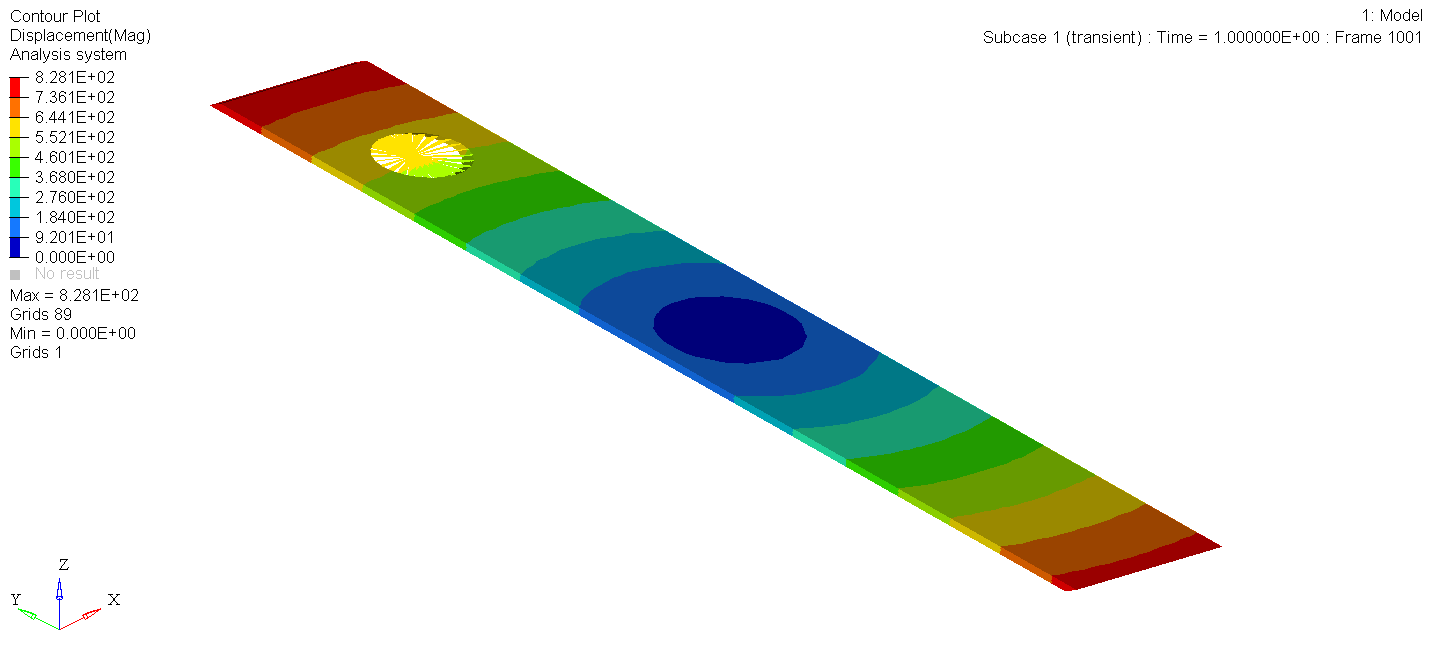
Unable to find an attachment - read this blog